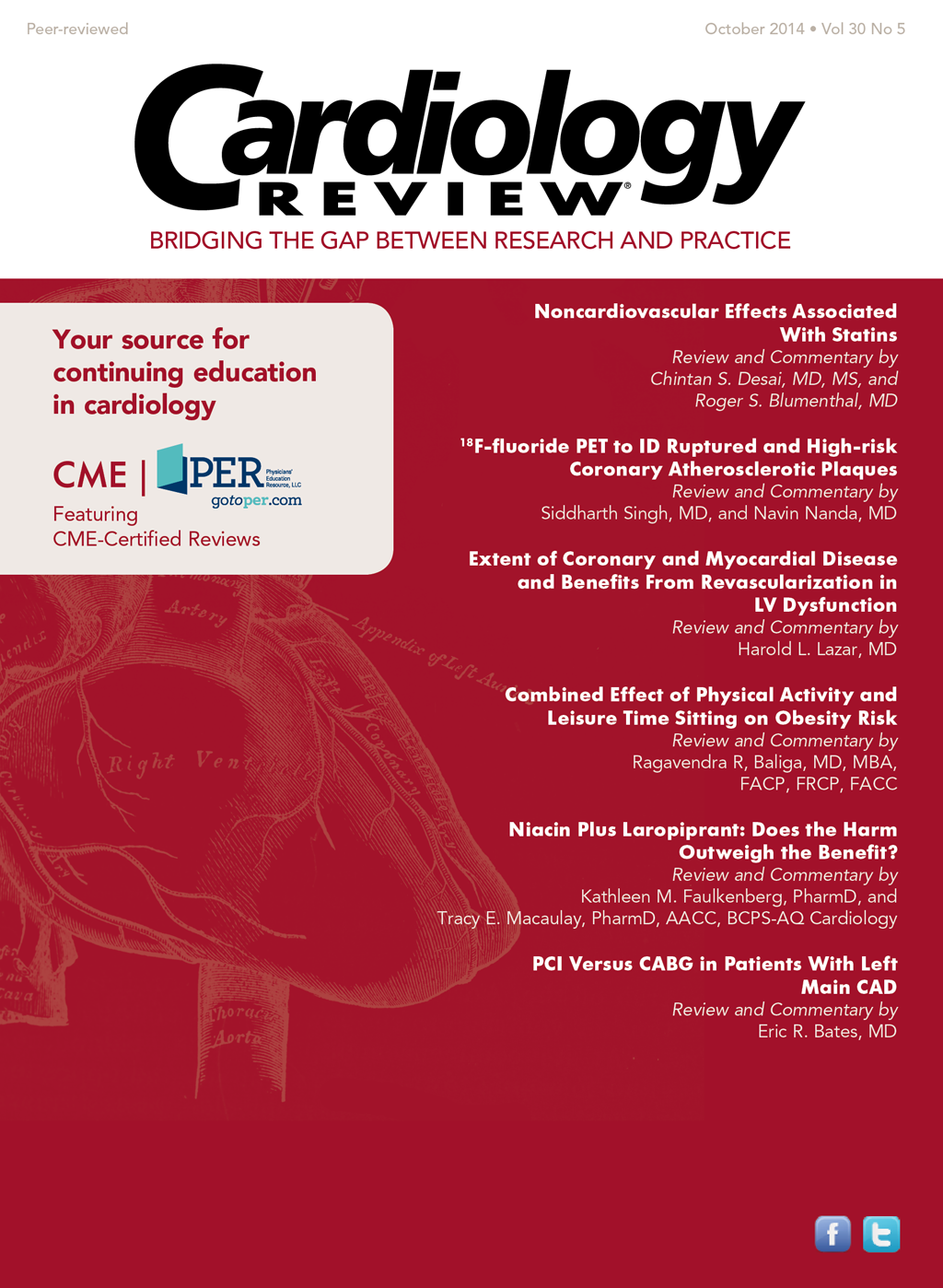Who Drives 'Innovation in Cardiology
This is a time of great change and uncertainty on many fronts in health care, and in cardiology in particular. From new research casting doubts on previously promising procedures (eg, the results from the Symplicity HTN-3 trial released at the 2014 ACC meeting that called into question the usefulness of renal denervation for treating resistant hypertension) to the continued chaos and turmoil surrounding the implementation and future of the Affordable Care Act (ACA), it seems the news raises more questions than it answers.

Mike Hennessy
T
his is a time of great change and uncertainty on many fronts in health care, and in cardiology in particular. From new research casting doubts on previously promising procedures (eg, the results from the Symplicity HTN-3 trial released at the 2014 ACC meeting that called into question the usefulness of renal denervation for treating resistant hypertension) to the continued chaos and turmoil surrounding the implementation and future of the Affordable Care Act (ACA), it seems the news raises more questions than it answers.
Even an area such as health information technology that seems like it should be more settled at this point remains a source of great frustration and uncertainty for cardiologists. After all, it’s been 10 years since the position of National Coordinator for Health Information Technology was created, and 5 years since the passage of the HITECH Act, which allocated tens of billions of dollars to promote and expand the adoption of health information technology. Yet after all this time, effort, and money, it seems we are still grappling with the same challenges and obstacles when it comes to implementing electronic health records (EHRs).
An article published recently in TCTMD noted the ongoing limitations of current EHRs are proving highly frustrating to cardiologists, especially because of the cost associated with implementing these systems and the potential reimbursement penalties for those physicians who cannot demonstrate “meaningful use” of their EHR system.
And time is running out on physicians who have not yet implemented an EHR system in their practice. According to TCTMD, “Eligible providers who do not demonstrate ‘meaningful use’ before the first day of 2015… will be subject to an annual, cumulative reimbursement penalty for each year they remain noncompliant. 2015 is the last year to begin participation in the Medicare EHR incentive program.”
This is potentially a problem for the specialty. One cardiologist quoted in the article noted that “cardiologists have been struggling with how to meet the requirements for implementing an EHR, choosing which EHR, and then altering how they have always delivered care in their practices to fit around EHRs.”
One cause of these difficulties, according to another cardiologist interviewed for the article,” is that although “interventional cardiology and the entire cardiology spectrum tend to be very data intensive and data rich,” the data entry and capture abilities of the current crop of EHR options make it very difficult to extract needed clinical data and share it with other EHR systems. They are described in the article as “very broad but not particularly deep,” functioning mainly as “repositories of blobs of information” rather than offering the truly comprehensive data management tools that their manufacturers have promised.
These qualities—obstacles to meaningful use that is tied to reimbursement, an inability to usefully organize and retrieve clinical data, lack of communication between systems and specialties—have combined with others to produce drastic declines in productivity and the sense among many cardiologists and other physicians who use these systems that their encounters with patients have become depersonalized, with clinicians spending more time interacting with the EHR than with the patient sitting in front of them. While there have been some improvements to these systems over time, the results continue to underwhelm.
In the title of this piece, I asked “Who is driving innovation in cardiology?” When it comes to health technology and reimbursement (2 of the 3 legs of the modern health care tripod, with research being the third), it’s clear that the federal government, rather than the market, has its hands on the wheel and is driving us into an uncertain future. In the article mentioned above, one frustrated cardiologist lamented that “We’re doing all this stuff for the government, jumping through their hoops, when a lot of this stuff is just not ready for prime time.”
The government has devoted years and billions of dollars to pushing its version of health IT, and is currently doing the same on an even grander scale with the ACA when it comes to health insurance and reimbursement. Is this the kind of “innovation” we need?
Thank you for reading!
Mike Hennessy
Chairman and CEO
